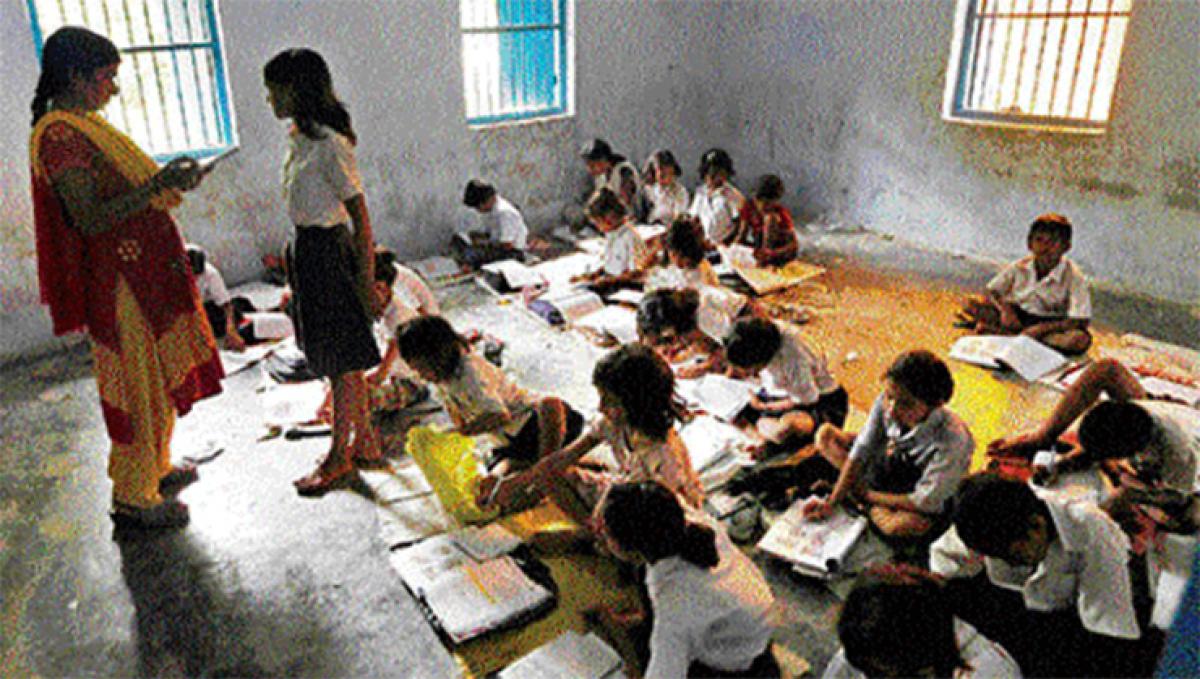Live
- UpStudy: The Smart Solution for Homework Hassles
- Actress Rithika and models inaugurate Sutraa Lifestyle Exhibition
- Loud campaign
- Faculty students celebrated english literature day in Government Degree College
- Huge fire accident.. Shops of street vendors burnt in the fire
- Pawan Kalyan promises to protect the coastal area from sea erosion
- EC Transfers Two Senior IPS Officers in AP ahead of Elections
- DMK analysis predicts victory for INDIA bloc in TN but concedes gains for BJP and NDA too
- India showcasing innovative technologies at World Energy Congress
- IPL 2024: Mitchell comes in for Ravindra as Lucknow opt to bowl first against Chennai
Just In
Children of Government servants and peoples representatives should study in public schools - Allahabad High Court


Children of Government Servants And Peoples Representatives Should Study In Public Schools - Allahabad High Court. Over the last couple of years there has been a deliberate effort in the country to defame Government public schools, as if they are inferior to private schools.
Over the last couple of years there has been a deliberate effort in the country to defame Government public schools, as if they are inferior to private schools. One of the allegations is about absence of teachers. In fact, since the Right to Education Act, the school education is badnaamed more. Transparency Review had analyzed thrice in the last two years on how Government itself has been making it difficult for public schools to correct many ills they are suffering from. Government both in the states and at the centre did nothing to protect Government schools from a psychological damning. There is enough evidence to conclude that Governments themselves are party in support of private education which has become a business proposition in a blatant way and implications to the very foundations of the country. As this lobby keeps gaining, enrollment into public schools is on decline, including drop outs.
.jpg)
It is against this background comes the Allahabad High Courts mid-August 2015 landmark judgment. At a time when no political leader in the country has taken the lead to be concerned about the deteriorating situation, Judge Sudhir Agarwal has come out with a much needed order that all Government servants and peoples representatives should send their children to Government primary schools. This Order is being rightly appreciated in editorials in most regional news papers across the country. This Court Order is unusual and indicative of the kind of concern judge Sudhir Agarwal has. There has been overwhelming support for this judgment in the country, notwithstanding what fate awaits this judgment in the higher Court.
The Court Order directs the Chief Secretary of Uttar Pradesh to take initiatives and report back actions in six months. Going beyond, the judge suggested that appropriate action be taken to ensure the order is implemented, including revoking panel provisions against defaulters from the next academic session. The judge cared to explain the compulsions for the judgment. He felt that there was not enough realization and seriousness in the Government of the grass roots realities to do with the neglect of the public schools. He thought this judgment helps mobilize awareness and boosts social equations between deprived families and well off ones with access to private education.
One of the compulsions for this landmark judgment is the way lakhs of teacher vacancies are kept for long in junior and senior primary schools, as if unaware or unconcerned of implications on public schools. It is a mindless neglect and casual approach, the order observed. There is ample evidence for this trend in many other states as well. For example 1700 residents in seven villages of Mehabobnagar district wrote a letter to the local court and complained that Government was not filling vacancies in the local schools which the Court noted as shameful and directed the authorities for taking action. (Some of the schools I visited three months ago are from this district). Despite 14 years of Sarva Siksha Abhiyan and 8 years of RTE, thousands of public schools are languishing without teachers.
In the wake of this Allahabad judgment, It is to be seen what specific measures HRD Ministry will take now towards changing the impressions about Government schools which the Minister Smt Smriti Irani had indicated to take up at the Advisory Council meet in August around the time this judgment was delivered. The least the Ministry should do is to bring out in a campaign mode what the minimum requirements for acceptable standards are for primary and upper primary schools. Public schools, with basic infrastructure and trained teachers, have no tuition fees, provides free books, free midday meal and even uniform. And well laid review and supervisory mechanisms. (That they are not strictly being observed is a different issue). None of these could be said about private schools, in rural India more particularly. Despite frequent increase in tuition fees without any improvement in infrastructure, the Governments have been reluctant to intervene. The Governments did nothing on violation of obligation of 25 percent reservation to the poor by private schools. Even Delhi High Court regretted and called for correctives. Now some States are even trying to close down public schools on the pretext that enrolment has declined.
By Dr N Bhaskara Rao,
Chairman CMS

© 2024 Hyderabad Media House Limited/The Hans India. All rights reserved. Powered by hocalwire.com






